This is part 8 of the Early Church History class.
Origen of Alexandria is the man behind the curtain. Although few Christians today would recognize his name, most denominations are still on a trajectory he initiated eighteen hundred years ago. His influences in theology, christology, eschatology, apologetics, textual criticism, asceticism, hermeneutics, and Christian philosophy are astonishing. Understanding Origen’s life and ideas is a major key to comprehending the history of ideas within Christianity’s most creative and speculative period. With the knowledge you’ve gained from our previous two episodes, you’ll be able to see how Origen drew on Philo and Clement and also moved beyond them to synthesize a doctrinal package in response to pressures and criticisms from the Gnostics, Valentinians, pagans, philosophers, and Jews.
Listen to this episode on Spotify or Apple Podcasts
—— Links ——
- Additional podcasts and articles on Origen of Alexandria
- More Restitutio resources on Christian history
- See other classes here
- Support Restitutio by donating here
- Join our Restitutio Facebook Group and follow Sean Finnegan on Twitter @RestitutioSF
- Leave a voice message via SpeakPipe with questions or comments and we may play them out on the air
- Intro music: Good Vibes by MBB Attribution-ShareAlike 3.0 Unported (CC BY-SA 3.0) Free Download / Stream: Music promoted by Audio Library.
- Who is Sean Finnegan? Read his bio here
—— Notes ——
“Origen was the most important Christian thinker between Paul in the first century and Augustine in the fifth century.”
–Joseph Lynch
Life (186 – 253)
- grew up in a Christian home
- a committed ascetic
Scripture
- strong commitment to the inspiration of Scripture
- an early textual critic: one who compares manuscripts to figure out the original reading
- Hexapla
- Hebrew (had learned from a Jew)
- Secunda (transliteration of Hebrew into Greek letters)
- Aquila of Sinope (2nd c., ad 130) very literal translation
- Symmachus the Ebionite (late 2nd c.)
- Septuagint with textual critical notes to mark where it differs from the Hebrew
- Theodotion (late 2nd c.) (Jewish Christian?)
- interpreted Scripture
- looking for hidden treasures
- preferred “spiritual” readings rather than reading according to “the letter” (2 Corinthians 3.6, 14-16)
- esoteric interpretation for elite, educated Christians (2 Corinthians 2.6-7)
Books
- Commentaries
- Commentary on Matthew, John, Song of Songs, etc.
- Sermons (Homilies)
- approximately 280 survive
- Treatises on Subjects
- On Prayer, Exhortation to Martyrdom, On Passover
- An Apology
- Against Celsus (over 500 pages!)
- Letters
- Letter from Origen to Sextus Julius Africanus, Letter from Origen to Gregory Thaumaturgus
- A Systematic Theology
- On First Principles (Greek: Peri Archon, Latin: De Principiis)
Theology
- God the Father is supreme
- begets Christ through exceptional process
- God created a realm of spirits (minds) with free will.
- These minds did not direct their attention properly and fell.
- Christ alone remained faithful to God.
- Through his Word, God created a physical universe to provide a way back for fallen spirits.
- Improvement is available to all creatures, even demons.
- ladder of stages:
perfection<->angels<->humans<->demons - speculated a kind of universalism (apokatastasis)
Christology
- Third Century Christologies
- Dynamic Monarchians (Artemon, Paul of Samosata)
- Modalistic Monarchians (Sabellius, Noetus)
- Logos Subordinationists (Tertullian, Origen)
- Docetists (Valentinians, Marcionites)
- eternal generation
- Logos/Son is eternal AND begotten
- clearly believed the Son was subordinate
Unusual Doctrines
- transmigration of souls (a.kx.a metempsychosis or reincarnation)
- universalism (a.k.a. apokatastasis)
- Even the devil eventually gets saved?
Review
- Origen was the most important Christian thinker between Paul and Augustine.
- He was an ascetic who trained himself to avoid pleasure.
- He strongly believed that God inspired Scripture.
- His hermeneutic (interpretation method) was to peer beneath the body of Scripture to its soul, and occasionally even its spirit through the use of allegory.
- He strongly opposed belief in a physical hope, preferring heaven to paradise on earth and a spiritual body to a physical resurrection.
- He believed elite Christians should ponder deeper esoteric truths that weren’t safe for the simple-minded.
- He interpreted Scripture through the lens of Neo-Platonism, always looking for a lesson on the soul’s ascent to the higher, spiritual plane.
- He believed the supreme Father eternally begot the subordinate Son/Logos as rays are eternally generated from the sun.
- A tireless defender of the faith he knew, Origen regularly risked his life as a young man and in the end suffered physical torture for his faith, eventually resulting in his death.

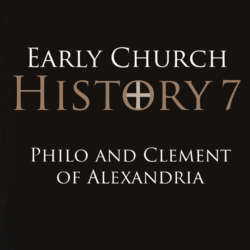
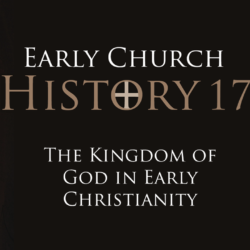
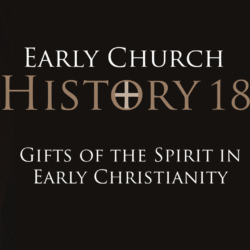

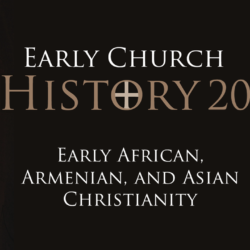
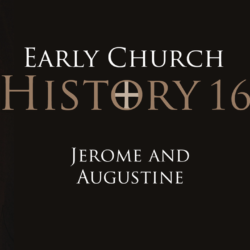
Hey Sean,
I have really been enjoying this series. Th ECF can be dry and boring but you present it in a way that holds my interest and keeps me looking forward to the next episode. Regarding Origen’ belief in the eternality of the son, If I’m not mistaken, did’nt he believe that the cosmos itself was eternally being created by God?
FYI Hanson notes “that Origen did in the Peri Archon describe the Son both as ‘having come into existence’ (genetos) and as a `creature’ (ktisma), at a period when nobody distinguished `having come into existence’ (genetos) from `begotten’ (gennetos).
But at the same time he declares his belief in the eternity of the Son as a distinct entity from the Father, even in the Peri Archon…”
(The Search for the Christian Doctrine of God, 2005, pp 63-4.)
Hey Troy,
I’m not sure what Origen thought about the creation of the universe. I suspect you can find an answer in his On First Principles.
Good day Professor,
I was researching Origen. It looks like he believed Jesus was created as the firstborn of all creation, but at the same time he believed in eternal generation which means Jesus was not created. How is that possible? Was a trinitarians or not?
Origen(2nd-3rd century) acknowledged, “And the apostle Paul says in his epistle to the Hebrews: ‘At the end of the days He spoke to us in his Son, whom He made heir of all things, ‘through whom’ also He made the ages,’ showing us that God made the ages through His Son, the ‘through whom’ belonging, when the ages were made to the Only-begotten. Thus if all things were made, as in this passage also, THROUGH [DIA] the Logos, then they were not made by the Logos, but by a stronger and greater than He. And who else could this but the Father?”
Origen’s Commentary on John, ANF 10, Book 2, chap. 6, p. 328
“It is indeed pretty clear…that Origen did in the Peri Archon describe the Son both as ‘having come into existence’ (genetos) and as a `creature’ (ktisma), at a period when nobody distinguished `having come into existence’ (genetos) from `begotten’ (gennetos). But at the same time he declares his belief in the eternity of the Son as a distinct entity from the Father, even in the Peri Archon…”
(Hanson, The Search for the Christian Doctrine of God, 2005, pp 63-4.)